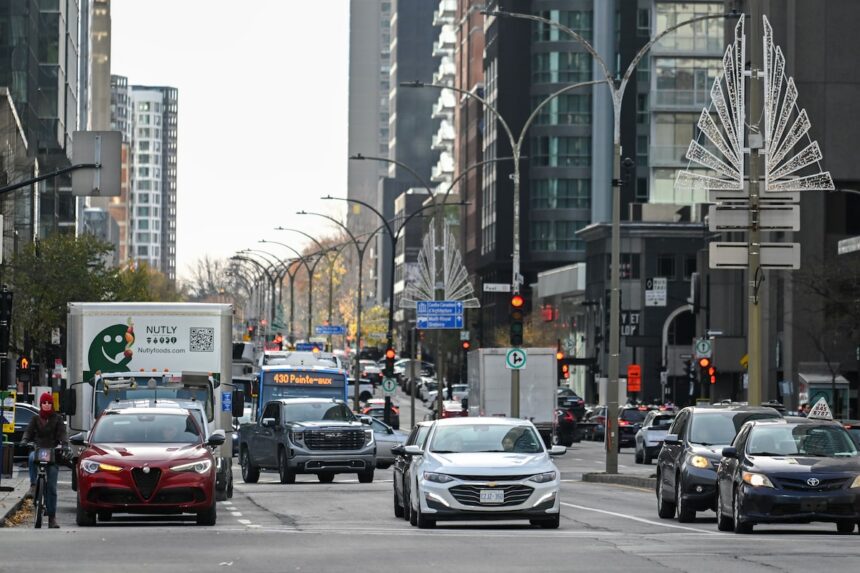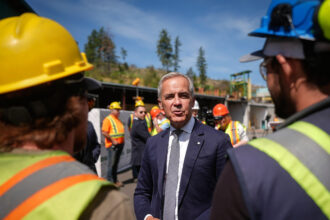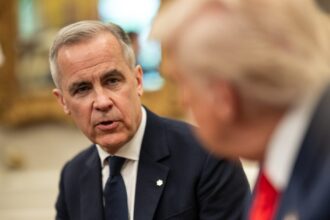The political pendulum swinging in Washington has cast a long shadow over Quebec’s ambitious climate goals, forcing provincial officials to recalibrate their emissions reduction strategy amid growing uncertainty about cross-border environmental policies.
Quebec’s Environment Ministry released revised carbon emissions projections yesterday, acknowledging that potential policy reversals under a future Trump administration could significantly impact the province’s ability to meet its 2030 targets. The province, which has long positioned itself as a North American climate leader, now faces the sobering reality that external factors may derail its carefully constructed emissions roadmap.
“We’re operating in an environment of unprecedented policy volatility,” said Environment Minister Benoit Charette during a press conference in Quebec City. “While we remain committed to our climate objectives, we must account for the changing regulatory landscape beyond our borders.”
The revised forecast indicates Quebec may achieve only 65-78% of its previously announced emissions reduction goals by 2030, down from earlier projections of 87-92%. This adjustment comes as analysts project that a second Trump presidency could dismantle key environmental regulations that Quebec’s climate strategy has been aligned with since 2020.
Quebec’s carbon market, linked with California’s cap-and-trade system since 2014, represents a particular vulnerability. The integrated carbon market has been a cornerstone of Quebec’s emissions reduction strategy, generating over $6.1 billion in revenue since its inception while creating economic incentives for businesses to reduce their carbon footprint.
Marc-André Viau, director of government relations at Équiterre, expressed concern about the ripple effects of U.S. policy changes on Quebec’s climate initiatives. “The integrated carbon market depends on regulatory alignment. If California’s climate policies face federal opposition, Quebec’s entire emissions trading system could be compromised,” Viau told CO24 News.
The province’s industrial sector appears particularly exposed to potential policy shifts. Quebec’s aluminum industry, which has invested heavily in low-carbon production methods to maintain competitiveness in environmentally conscious markets, could face significant setbacks if U.S. environmental standards are relaxed.
“We’ve built our competitive advantage around being one of the cleanest aluminum producers globally,” said Pierre Fitzgibbon, Quebec’s Economy Minister. “A dramatic shift in U.S. environmental policy could undermine years of strategic investments in sustainability.”
The uncertainty extends beyond industrial emissions to transportation and building sectors, where Quebec has been implementing increasingly stringent regulations aligned with broader North American trends. The province’s Zero Emission Vehicle standard, which requires automakers to sell a growing percentage of electric vehicles, mirrors similar policies in California that could face federal challenges under a less environmentally focused administration.
Energy analysts from the Montreal Economic Institute note that Quebec’s hydroelectric resources provide some insulation from policy volatility. “Quebec’s clean electricity grid remains a strategic asset regardless of U.S. policy direction,” said Germain Belzile, senior economist. “However, the province’s export-oriented industries need regulatory predictability to plan long-term investments.”
The revised projections have sparked debate within Quebec’s political landscape, with opposition parties criticizing the government for what they characterize as overreliance on external factors to achieve climate goals. Québec Solidaire environment critic Alejandra Zaga Mendez called for more autonomous climate policy that “doesn’t hinge on Washington’s political whims.”
Financial markets are already responding to the uncertainty. Carbon credit prices in the Quebec-California market have experienced increased volatility, with futures contracts showing sensitivity to U.S. election polling. This market uncertainty threatens to undermine the stable price signals needed to drive business investment in emissions reduction technologies.
Premier François Legault acknowledged the challenges but emphasized Quebec’s commitment to forging ahead with climate initiatives regardless of international developments. “While we must be realistic about external factors affecting our emissions trajectory, Quebec will continue leading on climate action through innovation and adaptation,” Legault stated during question period in the National Assembly.
The revised forecast raises fundamental questions about how subnational jurisdictions like Quebec can maintain climate momentum amid shifting national policies in their largest trading partners. As the province navigates this uncertain terrain, will its climate leadership prove resilient enough to weather the political storms brewing south of the border?










